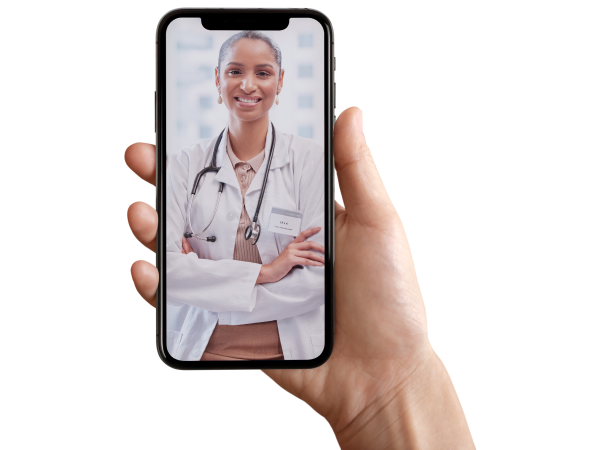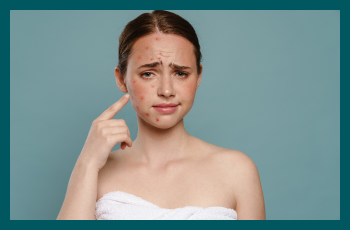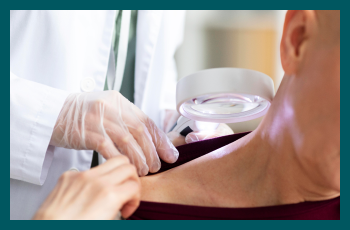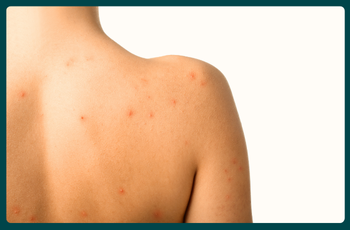Understanding Acne – Causes, Symptoms And Treatments
Written by Sai Pragna Chagarla, Staff Writer – Hola Health
Acne is a common skin condition that occurs due to clogging of pores or hair follicles. It is more prevalent in teenagers, and while it often lasts for 3 to 5 years, it can persist much longer in some cases. While it is commonly associated with adolescence, a substantial number of adults also grapple with acne-related concerns. It often presents as pimples, blackheads, whiteheads, and sometimes cysts. Acne is caused by a combination of factors, including bacterial growth in the blocked pores, hormonal changes, genetics, and lifestyle factors.
Acne can be associated with stigma due to societal perceptions and beauty standards that often prioritise clear and flawless skin. The stigma surrounding acne can have psychological and emotional impacts on individuals, influencing their self-esteem, body image, and overall well-being.
What causes Acne?
Acne could be caused by many lifestyle, genetic, regional and diet factors. Some of the major causes of acne include:
- Excess Oil Production: The sebaceous glands, located at the base of hair follicles, produce an oily substance called sebum. Excessive sebum production can lead to clogged pores and acne.
- Hormonal Changes: Fluctuations in hormones, especially during puberty, menstruation, pregnancy, and certain medical conditions, can trigger acne. Androgens, male hormones present in both males and females, play a significant role in this process.
- Bacteria: Propionibacterium acnes, a bacterium that normally lives on the skin, can multiply rapidly in clogged hair follicles, causing inflammation and acne.
- Genetics: A family history of acne may increase the likelihood of developing the condition.
- Stress: While stress itself does not directly cause acne, it can exacerbate existing conditions by influencing hormone levels and potentially worsening skin inflammation.
- Climate: Australia’s diverse climate, characterised by both humid and arid regions, can impact skin health. In humid areas, increased sweat production may contribute to clogged pores, while dry and arid conditions can lead to dehydration of the skin.
- Sun Exposure: Australia is known for its intense sun exposure, and while moderate sun exposure can have positive effects on the skin, excessive sun exposure may exacerbate acne or lead to post-inflammatory hyperpigmentation.
What are the types of Acne?
Acne can be divided into many different types depending on how it looks, which part it affects, and which age it affects:
- Blackheads or white heads: Small flesh or dark coloured bumps which form due to trapped dead skin cells or accumulation of oil.
- Inflammatory Acne such as papules, pustules, nodules, cysts are inflamed and infected bumps that could be painful and could lead to scarring.
- Hormonal Acne: Typically occurs in females and is often linked to hormonal fluctuations during puberty, menstruation, pregnancy, or conditions like polycystic ovary syndrome (PCOS). Hormonal acne tends to present as deep, cystic lesions around the jawline and chin.
What are the Symptoms of Acne?
The symptoms of acne can vary in severity and may include:
- Non-inflammatory lesions, such as blackheads and whiteheads, are common in mild cases.
- Papules: Small, red, and tender bumps that result from inflammation and infection of the hair follicles.
- Pustules: Pimples containing pus at the centre, characterised by a red base.
- Nodules: Large, solid, painful lumps beneath the surface of the skin.
- Cysts: Deep, painful, pus-filled lesions that can cause scarring.
How can you treat Acne?
Depending on the severity and type of acne, treatment often begins with consultation with a healthcare professional such as a pharmacist who can recommend over-the-counter creams, gels or lotions for mild cases, or a GP who can diagnose the condition and recommend prescription medications for more severe cases. You can now speak to a doctor within 15 minutes and get a solution or a prescription. In severe cases or those not responding to initial therapy, a GP can refer you to a dermatologist to get further procedures or medical extraction.
- Topical Treatments: Over the counter or prescription creams, gels, and lotions containing ingredients like benzoyl peroxide, salicylic acid, and retinoids can help unclog pores and reduce inflammation. Know what creams or lotions you require, order your medication online from the comfort of your home.
- Oral Medications: Antibiotics, oral contraceptives (for females), and isotretinoin (a powerful retinoid) are prescribed for moderate to severe acne (but should be avoided in pregnant women or those planning to become pregnant due to the risk of birth defects). Isotretinoin has also been associated with mental health issues such as depression and in rare cases, suicidal thoughts or actions, and the risks of these should be discussed with the specialist prior to starting treatment.
- Lifestyle Changes: Adopting a skincare routine with non-comedogenic products, avoiding excessive sun exposure, and maintaining a healthy diet can contribute to managing acne.
- Procedural Interventions: Dermatological procedures like chemical peels, microdermabrasion, and laser therapy can help improve skin texture and reduce acne lesions.
- Extraction: In-office extraction of comedones and pustules by a dermatologist can prevent further inflammation and scarring.
Acne is a common skin condition in Australia, influenced by a combination of factors such as climate, sun exposure, healthcare accessibility, cultural practices, and lifestyle choices. Mild cases may respond well to over-the-counter products, while more severe forms may require prescription medications or dermatological procedures. It is advisable to consult with a dermatologist for an accurate diagnosis and tailored treatment approach. Promoting empathy, understanding, and realistic beauty standards can contribute to a more positive environment for those living with acne.

Consult an Online Doctor in 15 mins




Reference
- Acne – Health Direct: Reference Link
- Acne – The Royal Children’s Hospital Melbourne: Reference Link
- Acne – The Australian College of Dermatologists: Reference Link
- Acne – The Royal Children’ Hospital Melbourne: Reference Link
- Acne – Better Health Channel: Reference Link






 Facebook
Facebook Instagram
Instagram LinkedIn
LinkedIn



